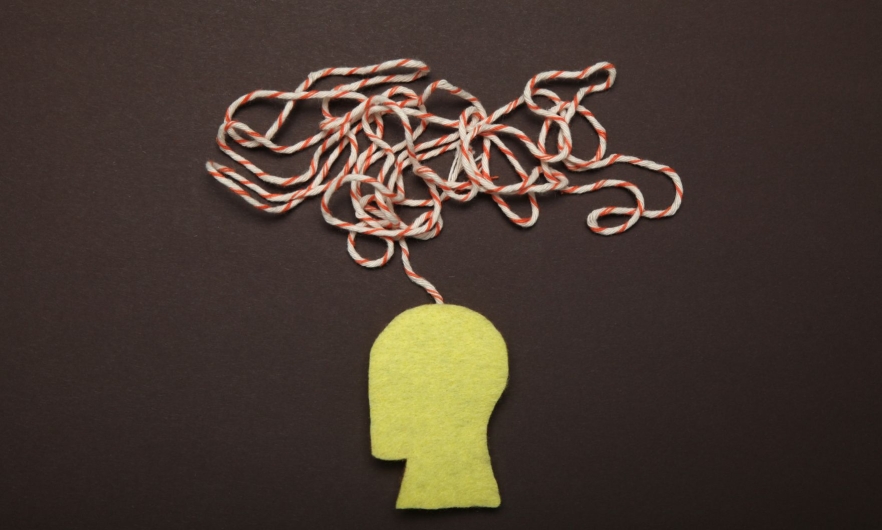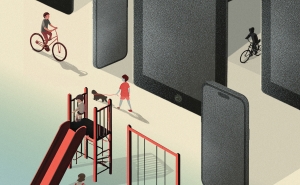New Study Shows Bipartisan Struggles with Depression, Reveals Gaps in Mental Health Care Access
Ensuring access to mental health care is a bipartisan opportunity for public health policy priorities.

A new study published in September in the Journal of Public Health Management and Practice sheds light on the mental health crisis gripping millions of Americans, and the findings suggest that depression is a bipartisan issue that affects people across party lines. According to the study, there is, however, a striking divide on whether people seek mental health treatment, with Republicans less likely to have accessed care despite reporting similar rates of depression compared to Democrats and Independents.
This research, led by Catherine Ettman, PhD, and C. Ross Hatton, PhD, MPA, of the Department of Health Policy and Management in collaboration with NORC at the University of Chicago, comes at an urgent moment as the U.S. grapples with the ongoing mental health impact of the COVID-19 pandemic. According to the study, more than 22.5 million adults are estimated to have had a depressive episode in 2022, and depression has now also emerged as one of the costliest conditions for the U.S. economy, topping over $326 billion annually. As depression gains national attention, discourse, and policy conversations, the study underscores the need for a bipartisan approach to addressing gaps in mental health care access.
The study, which included a survey of 2,479 U.S. adults this past spring, explored two main questions: whether depression rates vary across political party lines, and whether people with depressive symptoms were accessing mental health care.
Contrary to previous studies that found mental health outcomes may be worse for Democrats and Independents compared to Republicans, this study finds that depressive symptoms are virtually indistinguishable across party lines. The data showed 25.2% of Democrats screened positive for depression, compared with 23% of Independents and 20.5% of Republicans. These differences were not statistically significant, meaning that depression does not appear to discriminate by political belief.
While depression itself is non-partisan, access to mental health treatment may be another story altogether. Among those who screened positive for depression, the researchers found that Republicans were significantly less likely than both their Democratic and Independent counterparts to have sought help from a mental health care provider in the past 12 months. The study also showed that, among those with depressive symptoms, 73.9% of Republicans had unmet mental health care needs, versus 58.9% for Democrats and 58% Independents.
Regardless of political affiliation, there was one trend that seemed to bring concern: 62% of adults with depression reported having their mental health care needs unmet in the last year. These unmet mental health care needs, across the board, were high- likely indicative that the nation's mental health infrastructure is not appropriately resilient in the face of such magnitude. "The level of unmet mental health needs for these groups was staggeringly high across every group, a signal of how the nation's mental health infrastructure may not be fit for the scale of the crisis," said Ettman.
The researchers utilized the PHQ-9, an instrument that is considered a standardized measure of depressive symptoms and statistically weighted for sociodemographic covariants such as age, race, education level, and income. The results, weighted to be representative of the U.S. population, were unequivocal: depression does not cleave to political divisions, while access to mental health care does.
This study carries important implications for public health officials, policymakers, and political leaders with the 2024 election on the horizon. With unmet mental health needs running so high— particularly among Republicans— bipartisan efforts to expand access to mental health care could enjoy widespread appeal among the electorate.
With the elections of 2024 fast approaching, mental health policy could become one of the increasingly rare, consensus-driven issues in a deeply divided political climate. The study findings show how expanded access to mental health care might override party lines and open up an easy opportunity for candidates to gain favor with voters on this pressing issue.
The researchers further recommend that policymakers invest more in policies aiming at improving access to mental health care, increase the funds to strengthen the service level of mental health, enhance insurance coverage for mental health treatments, and remove stigma associated with seeking mental health care.
The results of this study demonstrate that depression is an equal-opportunity issue across the aisle, but access to care still isn't, particularly for Republicans. As the U.S. struggles to grapple with its ever-growing mental health crisis, expanded access to mental health services could be one of the few policy issues that ultimately unite Americans across the aisle.





